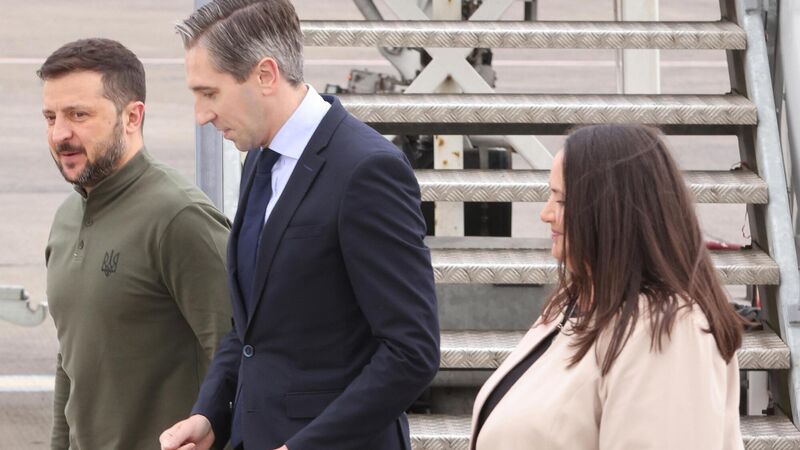How far should Ireland go in providing non-lethal aid to Ukraine?

Ukrainian President Volodymyr Zelenskyy in Shannon Airport with Taoiseach Simon Harris and Ukrainian ambassador to Ireland, Larysa Gerasko. Photo: Eamonn Farrell/© RollingNews.ie
A month ago the Ukrainian ambassador to Ireland told an Oireachtas committee that she could guarantee the Irish Government that any funding it gives for air-defence systems to protect civilians from missiles would only be used for that purpose.
Larysa Gerasko said, it that way, the Government could stay within the confines of only providing Ukraine with “non-lethal” military aid, as both missiles and armed drones are unmanned.
















